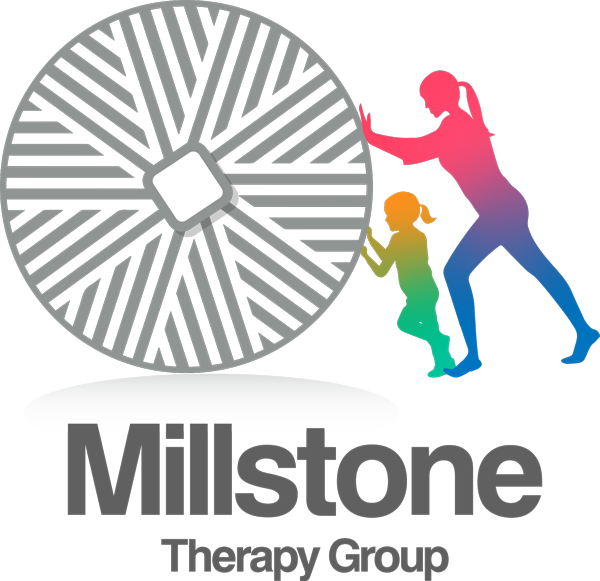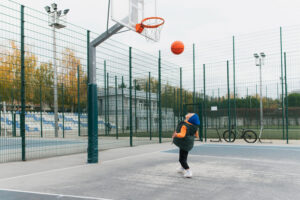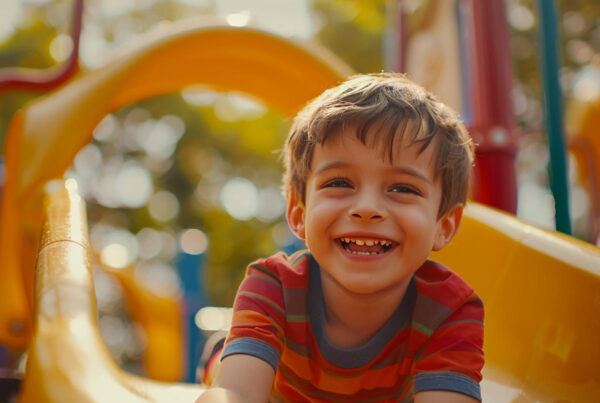When you think about the coordination it takes to tie your shoes or write a note, you’re considering praxis and motor planning, essential components of occupational therapy. As you explore these concepts, you’ll find they’re not just about physical movements but also about how you plan and execute tasks in everyday life. If you’ve ever wondered how these skills develop or why some find them challenging, you’re not alone. Understanding the intricacies of these processes can illuminate why occupational therapists focus so heavily on them, especially in helping individuals achieve greater independence. What might this mean for someone struggling with these skills?
What is Praxis?
Praxis is the skill that enables you to plan, organize, and execute complex motor tasks, essential for everyday activities and learning. It’s important, not just for moving but for functioning independently and successfully in daily life. Understanding praxis—its definition, importance, development, assessment, and intervention—can greatly improve therapeutic practices, particularly in occupational therapy.
Praxis development is a dynamic process. As your child grows, they learn to conceptualize, plan, and execute actions that were once challenging, from dressing to engaging in sports. This ability is foundational for cognitive and physical growth, paving the way for more complex learning and interaction.
Assessing praxis is important; it helps identify where your child might struggle with motor planning and execution. Through targeted assessments, therapists can pinpoint specific difficulties in the sequence of conceptualizing and performing tasks. This is crucial for effective interventions.
Praxis intervention then involves specific strategies and exercises designed to improve your child’s motor planning skills. These interventions are tailored based on assessment results, focusing on improving their ability to conceptualize, sequence, and execute tasks efficiently. Through consistent practice and feedback, you can improve their praxis, leading to better independence and quality of life.
The 4 Components of Praxis
There are 4 main components of praxis that are important to understand in order to better assist your child in improving their praxis skills.
The first component is ideation, which is the ability to conceptualize what needs to be done.
Next, we’ll look at motor planning and execution, followed by how your child can use feedback and adaptation to refine their actions.
1. Ideation
Ideation, a key component of praxis, involves your ability to conceive original ideas for performing tasks or solving problems. This process is essential in how you approach everyday challenges and engage creatively with the world around you.
Whether your child is imagining a new way to organize your room or dreaming up a game to play outside, ideation fuels their creative thinking and innovative play.
In occupational therapy, enhancing your child’s ideation skills is important. Therapists might introduce brainstorming activities that encourage them to think outside the box and develop their problem-solving skills. These activities are designed not only to improve their ability to generate ideas but also to refine how these ideas can be effectively implemented in real-world scenarios.
Artistic expression is another avenue through which ideation can be explored. Creating art, whether it’s drawing, painting, or dancing, allows the child to express and shape their thoughts in unique, tangible forms.
This expression is significant as it helps bridge the gap between thinking and doing, enabling them to see the results of their creative processes.
2. Motor Planning
After ideation, you’ll need to develop a motor plan, which is an essential step in determining how your body moves through space. This process is closely tied to sensory integration, as your body must effectively process sensory information to execute movements accurately. Motor planning involves both fine motor and gross motor skills, which are vital for daily activities ranging from buttoning your shirt to running and jumping.
Understanding and organizing these movements require acute body awareness—knowing where each part of your body is and how it’s moving. This awareness is fundamental to sensory processing, allowing you to coordinate actions smoothly and effectively.
For children, especially, motor planning is often developed through play-based activities. These activities not only make the process engaging but also help in reinforcing the motor skills as they repeat actions during play.
3. Execution
Execution, the third component of praxis, requires you to combine and perform the correct sequence of steps in a task, ensuring each movement flows smoothly into the next. This aspect of praxis is essential because it’s where your activity planning comes to life through movement coordination and action sequences.
As your child engages in task performance, each motion they initiate must be meticulously ordered and executed to achieve the desired outcome. Imagine they’re learning to tie their shoes—a seemingly simple activity that actually involves complex skill execution. Initially, they might fumble with the laces, struggling to remember whether to loop under or over. This is a typical scenario where execution plays a key role.
It’s not just about knowing what to do; it’s about organizing and carrying out these steps effectively. You’ll find that with practice, the process becomes more intuitive for them. Their fingers will start to move with confidence, and what once required conscious thought now happens almost automatically.
However, reaching this level of proficiency demands patience and repetition. Remember, the first time you try any new task, from driving to cooking, you might need extra time and effort to refine your movements and enhance your skill execution.
4. Feedback and Adaptation
Once the child has begun to master the execution of a task, feedback and adaptation plays an important role in refining their movements and enhancing overall skill.
Through sensory feedback, they receive essential information about how their body interacts with its environment. This sensory integration is critical as it allows them to assess whether their actions are leading to successful activity completion.
As you process this feedback, their ability to problem solve comes into play. The child might find that the initial way they organized their movement isn’t the most effective. Perhaps their approach was too rigid, or maybe they didn’t account for all the environmental variables. Whatever the case, they’re now faced with the challenge of rethinking and adjusting their strategy.
This is where adaptation becomes necessary. It involves tweaking their movement organization based on the sensory feedback they’ve received. By doing so, they refine their motor plans to better suit the task at hand. It’s a dynamic process, constantly evolving as they learn from each attempt.
Praxis Requires Repetition
To master new motor skills effectively, your child will need to practice them repeatedly. Repetition isn’t just about doing the same thing over and over; it’s an essential part of the learning process that enhances motor coordination and underpins skill development. Let’s explore why consistent practice is so important:
- Repetition Benefits: Each time your child repeats an action, their brain fine-tunes the neural pathways responsible for that movement. This optimization helps make the action smoother and more automatic over time.
- Skill Development: As they practice, they’re not just reinforcing old skills but also setting the stage for more intricate ones. This scaffolding is necessary for building a well-rounded skill set from simple movements to more complex tasks.
- Practice Importance: Consistent repetition solidifies what they’ve learned, embedding it deeply into your muscle memory and cognitive processes, which is essential for skills like writing, tying shoes, or riding a bike.
- Motor Coordination: Through repetitive practice, their body learns to coordinate multiple movements into a single fluid action, enhancing both their precision and efficiency.
Challenges with Praxis
When you notice a child struggling with praxis, they may face difficulties in generating ideas, planning movements, executing actions, or adapting their behavior based on feedback.
These challenges can affect their ability to perform everyday tasks and interact with their environment effectively.
Understanding each area where they encounter obstacles is vital for developing targeted interventions that can help enhance their motor planning skills. You can always reach out to an occupational therapist for an evaluation to get more details about which areas your child may specifically have challenges with, if any.
Challenges with Ideation
Children who struggle with ideation often find it challenging to generate new ideas or engage in creative play. If you’re observing this in your child, they might be facing ideation struggles, which can greatly impact their ability to participate in both structured and unstructured activities. These challenges can inhibit creative thinking and problem-solving, making it difficult for them to engage in a variety of social and educational settings.
Here are some signs that a child may be experiencing difficulties with ideation:
- Lack of Variety: They may repeatedly choose the same activities or games, showing little interest in exploring new options.
- Difficulty in Activity Planning: When faced with free time, they might seem lost or unable to decide what to do, often relying on adults to provide suggestions.
- Struggles with School Projects: Tasks that require generating ideas or creative outputs, like writing stories or creating art, can be particularly challenging.
- Social Interaction Issues: They might withdraw from play that requires imaginative interaction with peers, preferring solitary or highly structured games.
Challenges with Motor Planning
If your child struggles with motor planning, they may find it challenging to coordinate their movements and understand their physical position relative to the environment. This difficulty in motor coordination often manifests as clumsiness and a lack of postural control. They might also struggle with tasks that require fine motor skills, such as buttoning a shirt or holding a pencil correctly.
These challenges are deeply intertwined with sensory integration issues. Your child might be overly sensitive or under-responsive to sensory stimuli, which can affect their ability to process and respond to the information their body receives about space and movement. This can impair their spatial awareness, making activities like climbing or playing sports particularly difficult.
Cognitive processing plays an essential role in motor planning as well. If there are deficits in this area, your child might find it hard to plan and execute sequences of actions, which are essential for everyday tasks and learning new skills. This can lead to frustration and avoidance of activities that other children might engage in effortlessly.
Challenges with motor planning can also be diagnosed as dyspraxia, or Developmental Coordination Disorder (DCD).
Challenges with Execution
Understanding the challenges with motor planning sets the stage to explore how these issues affect a child’s ability to execute tasks effectively. When motor skills are compromised, your child might face significant difficulties in task completion, which is important for learning and daily functioning.
Occupational therapy plays an important role in addressing these challenges, focusing on improving motor and cognitive function to facilitate skill development. Here are some specific ways execution difficulties may manifest:
- School Tasks: Your child may struggle with organizing and completing assignments, leading to incomplete homework or projects. This compromises their academic performance and can impact their confidence and willingness to engage in school activities.
- Self-Care Tasks: Difficulties with motor planning can make routine activities like brushing teeth, dressing, or feeding challenging. This can delay independence and affect self-esteem.
- Initiation and Impulse Control: Starting a task and staying on track can be tough. Your child might procrastinate or show a lack of focus during activities that require sustained mental effort.
- Working Memory Skills: Remembering multi-step instructions or sequences in tasks, like following a recipe or assembling a toy, becomes a hurdle.
Challenges with Feedback and Adaption
When a child struggles with feedback and adaptation, they may not recognize their own difficulties in completing tasks. This lack of awareness is a key aspect of adaptation difficulties. They might frequently respond to complex activities with a dismissive ‘that was easy!’ without acknowledging their struggles. Such scenarios highlight significant challenges in feedback processing, where the child doesn’t accurately perceive or internalize constructive criticism or guidance.
Moreover, you may notice their lack of impulse control, especially when they react negatively to attempts to modify their approach. This is often intertwined with issues in emotional regulation; they may exhibit frustration or anger when faced with feedback that suggests change. This emotional response can hinder their ability to process and use feedback effectively, complicating their learning and adaptation processes.
Additionally, task rigidity can manifest, where they repeat the same actions in the exact same manner, regardless of the outcome. This rigidity not only limits their ability to adapt but also their openness to exploring alternative methods.
As someone guiding their development, understanding these challenges is important. It allows for custom strategies that address these specific areas, fostering a better environment for learning and growth in your child.
How to Improve Your Child’s Praxis Skills
Several effective activities can help improve your child’s praxis skills, promoting better coordination and motor planning that is essential for daily tasks. These skills are pivotal not only for physical activities but also for boosting confidence and independence in performing everyday functions.
Incorporating specific, targeted activities can greatly impact their development:
- Sensory Integration Activities: Engage your child in activities like maneuvering uneven surfaces or creating an obstacle course. These exercises help in enhancing body awareness and are essential for developing accurate motor responses to sensory inputs.
- Coordination Exercises: Simple games like Simon Says or playing catch improve bilateral coordination. These activities require your child to use both sides of their body in a coordinated manner, which is important for tasks such as writing, dressing, or using tools.
- Balance Skills: Have your child perform balance activities like standing on a Bosu ball or sitting on a peanut ball while reaching for objects. These strengthen core muscles and improve overall stability, crucial for daily movements.
- Cognitive Strategies: Break down complex tasks into smaller, manageable steps. This method not only simplifies learning but also helps in building cognitive frameworks for motor planning.
Implementing these strategies with patience and consistency will greatly enhance your child’s ability to plan and execute tasks seamlessly. An occupational therapist can help you maintain consistency in these exercises with your child to make sure they improve in the areas where they may be falling behind.
